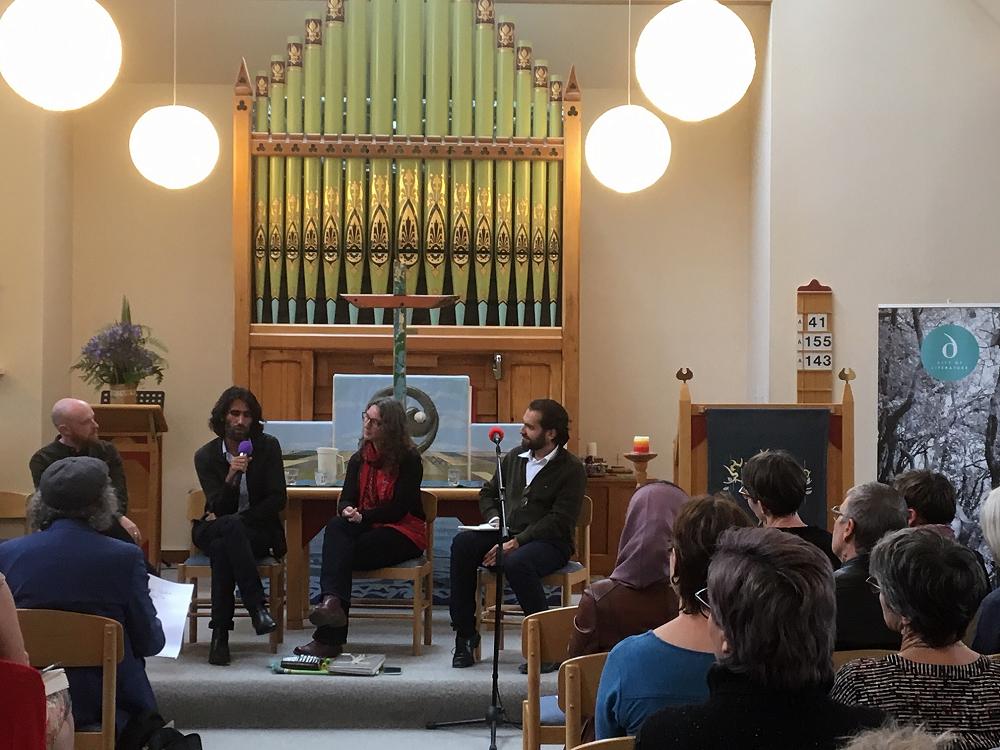
Boochani in Dunedin
Behrouz Boochani and Professor Alison Phipps in conversation
Posted: Friday Jun 05, 2020
The United Nations refugee agency (UNHCR) estimates that there are 68.5million forcibly displaced people worldwide. Of these, 24.5million are recognised as refugees and 3.1million as asylum seekers.
On 7 February 2020 the Centre for Global Migrations and Mornington Methodist Church co-hosted a conversation between Behrouz Boochani and Professor Alison Phipps.
Alison is UNESCO Chair in Refugee Integration through Languages and the Arts at the University of Glasgow and the 2019 De Carle Distinguished Lecturer at the University of Otago.
Behrouz Boochani was born in 1983 in Ilam, a Kurdish town in western Iran. After gaining a master's degree in political science, he worked as a freelance journalist.
He co-founded and produced a Kurdish magazine, which brought him to the attention of Iran's self-proclaimed moral and religious guardians, the Islamic Revolutionary Guard.
In February 2013, the magazine offices were raided and 11 of Boochani's colleagues were arrested. Boochani went into hiding and then fled Iran, making his way through Asia to Indonesia.
In July, of that year, he and 60 fellow asylum seekers trying to reach Australia by boat were intercepted by the Australian Navy. He was detained on Christmas Island and then Manus Island, where he has been a prisoner since August 2013.
The audience was treated to in-depth discussion and personal insights from Behrouz and Professor Phipps about the power of literature and the arts to heal and transform. There was a palpable sense of joy that he was present in person rather than via Skype from Manus Island. Behrouz became an advocate for the refugees when he sent reports, documenting human rights abuses at the detention centre to news agencies and human rights organisations. In 2019, his memoir, No Friend but the Mountains: Writing from Manus Prison won the Victorian Prize for Literature and the Victorian Premier's Prize for Non-fiction. The book was written on Behrouz Boochani’s phone and sent one message at a time to his translator, Omid Tofighian.
In June 2019 Neil Vallelly’s first live-streamed conversation with Behrouz and Tofighian was held at Dunedin Public Libraries and attracted a large audience and overwhelming media interest.



